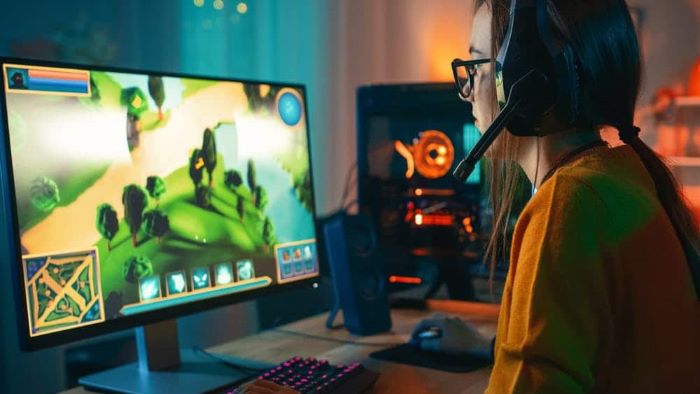In recent years, video games have evolved from mere entertainment to immersive virtual worlds where players can embark on epic adventures, connect with friends, and explore new realms. However, amidst the excitement and thrill of gaming, ensuring safety and well-being has become an increasingly important concern. In this article, we will delve into the various aspects of safety at video games, exploring strategies to navigate the virtual world with confidence and responsibility.

Understanding the Virtual Landscape: Risks and Challenges
As the popularity of video games continues to soar, so too do the risks and challenges associated with them. From online predators and cyberbullying to excessive screen time and addiction, navigating the virtual landscape requires vigilance and awareness. Understanding these risks is the first step towards ensuring safety and well-being in the gaming community.
Promoting Healthy Gaming Habits: Balancing Play and Rest
One of the keys to safety at video games is promoting healthy gaming habits. Encourage players to balance their gaming sessions with adequate rest, physical activity, and social interactions. Setting time limits, taking regular breaks, and establishing clear boundaries can help prevent the negative effects of excessive screen time and promote overall well-being.
Educating Players: Awareness is Key
Education plays a crucial role in ensuring safety at video games. Equip players with the knowledge and awareness to recognize potential risks and threats. Teach them about online privacy, the importance of not sharing personal information with strangers, and how to identify and report inappropriate behavior. Empowering players with information allows them to make informed decisions and navigate the virtual world responsibly.
Parental Involvement: Supervision and Guidance
For younger players, parental involvement is essential in promoting safety at video games. Supervise their gaming activities, set age-appropriate content restrictions, and establish clear rules and guidelines. Engage in open and honest conversations about online safety, cyberbullying, and responsible gaming practices. By actively participating in their gaming experiences, parents can help ensure a safe and positive gaming environment for their children.
Community Guidelines and Moderation: Fostering a Safe Gaming Environment
Gaming communities and platforms play a pivotal role in maintaining safety and well-being. Establish clear community guidelines that outline acceptable behavior and consequences for violations. Implement robust moderation systems to monitor player interactions, detect inappropriate content, and address misconduct swiftly. By fostering a culture of respect and inclusivity, gaming communities can create a safe and welcoming environment for all players.
Securing Online Interactions: Protecting Privacy and Personal Information
Online interactions pose inherent risks, particularly when it comes to privacy and personal information. Encourage players to use privacy settings to control who can contact them and access their information. Remind them never to share sensitive personal information, such as their address or financial details, with strangers online. By prioritizing privacy and security, players can safeguard themselves against potential threats and vulnerabilities.
Anti-Cheating Measures: Upholding Fair Play and Integrity
Cheating and hacking not only undermine the integrity of the gaming experience but also pose security risks to players. Implement anti-cheating measures and enforce fair play policies to deter cheaters and maintain a level playing field. Provide players with avenues to report cheating and suspicious behavior, and take prompt action to address violations. Upholding fair play and integrity enhances the overall safety and enjoyment of video games for all players.
Mental Health Support: Addressing the Impact of Gaming
While gaming can be a source of enjoyment and relaxation, it’s essential to acknowledge its potential impact on mental health. Provide resources and support for players who may be struggling with gaming addiction, anxiety, or other mental health issues. Encourage open dialogue about mental health and well-being within the gaming community, and promote access to professional help when needed. By prioritizing mental health support, we can ensure that gaming remains a positive and enriching experience for all players.
Conclusion: Navigating the Virtual World Responsibly
In conclusion, safety at video games is a multifaceted endeavor that requires collaboration, education, and vigilance from players, parents, communities, and platforms alike. By promoting healthy gaming habits, educating players about online safety, fostering a safe and inclusive gaming environment, and addressing mental health concerns, we can navigate the virtual world with confidence and responsibility. Together, let us embrace the transformative power of video games while ensuring the safety and well-being of all who embark on virtual adventures.